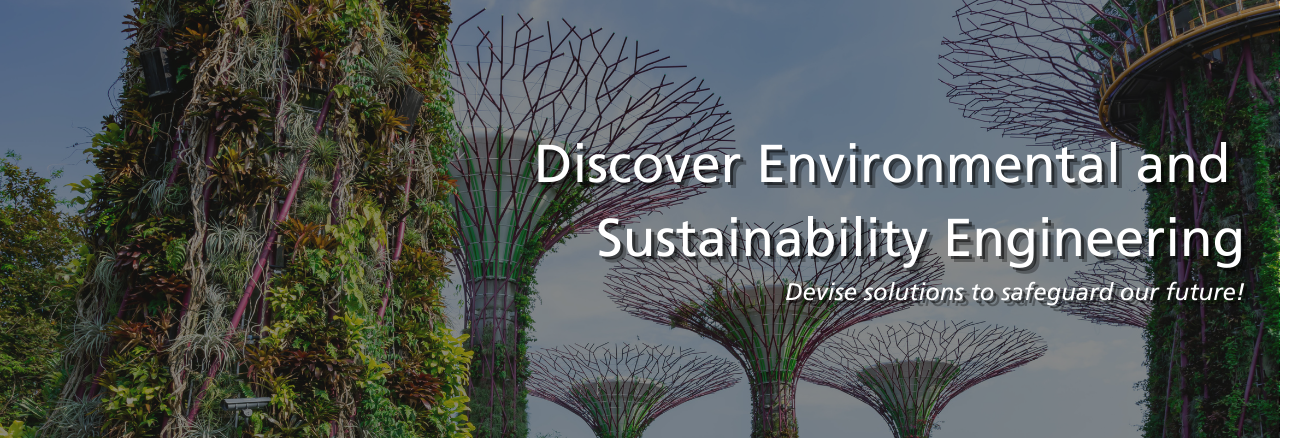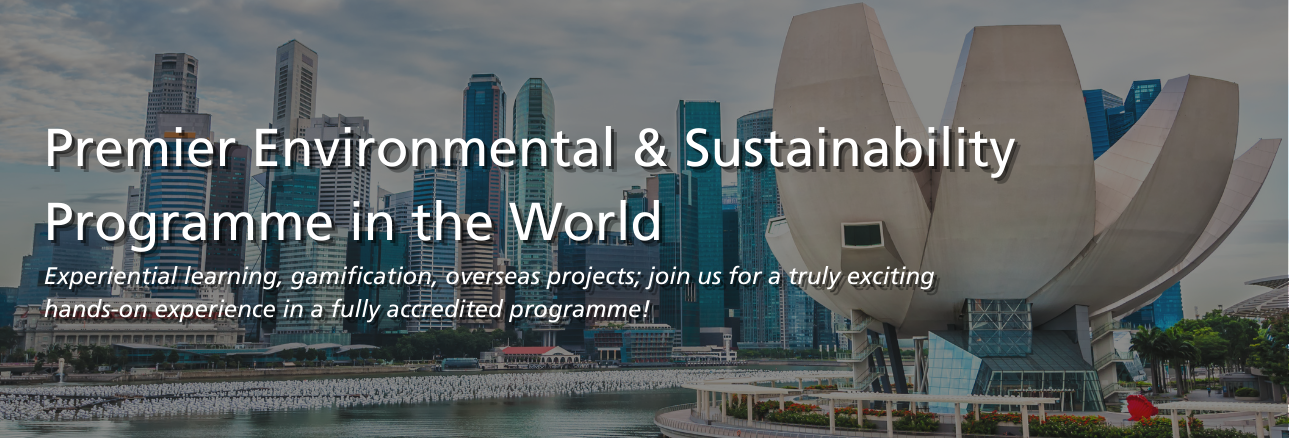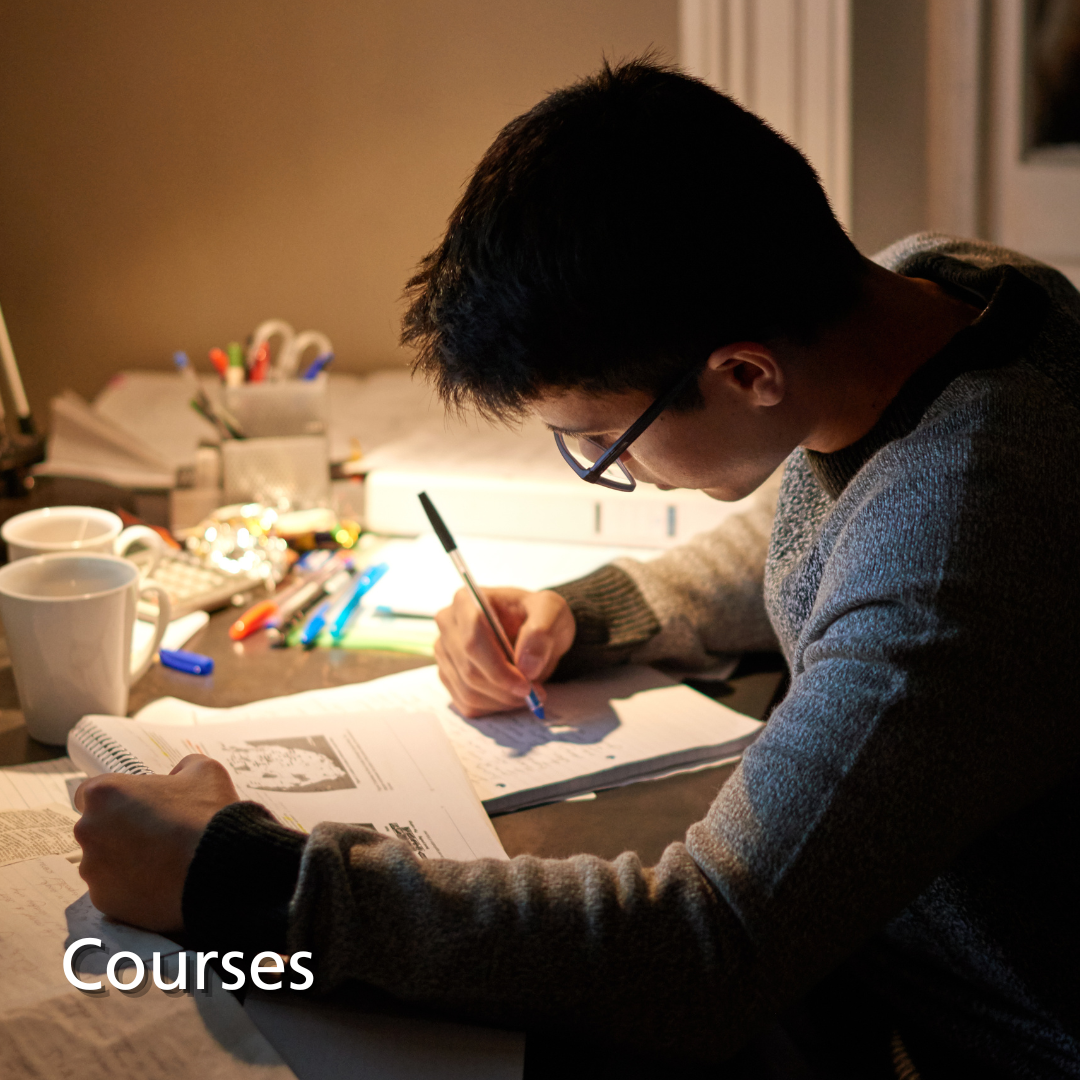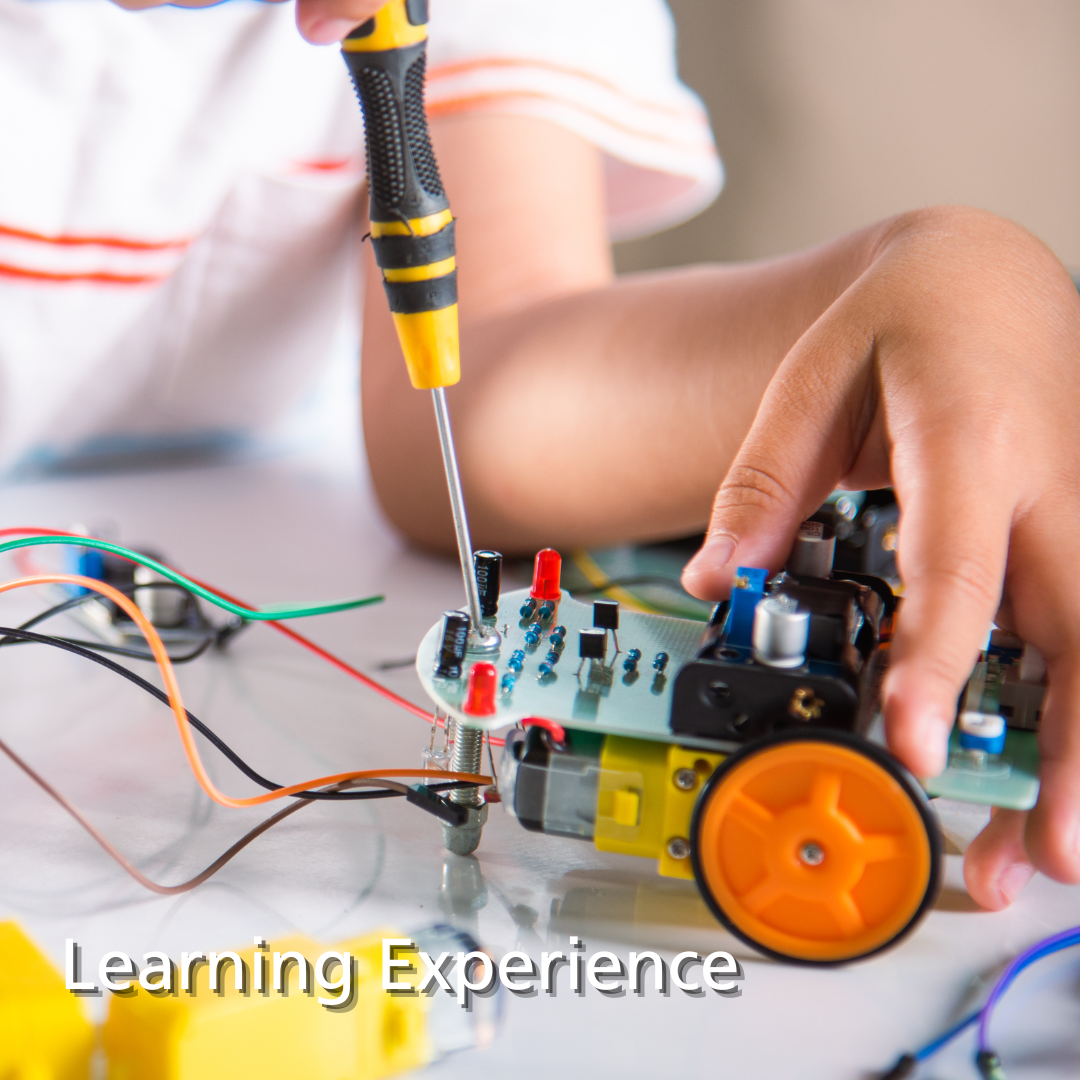Bachelor of Engineering (Environmental and Sustainability Engineering)
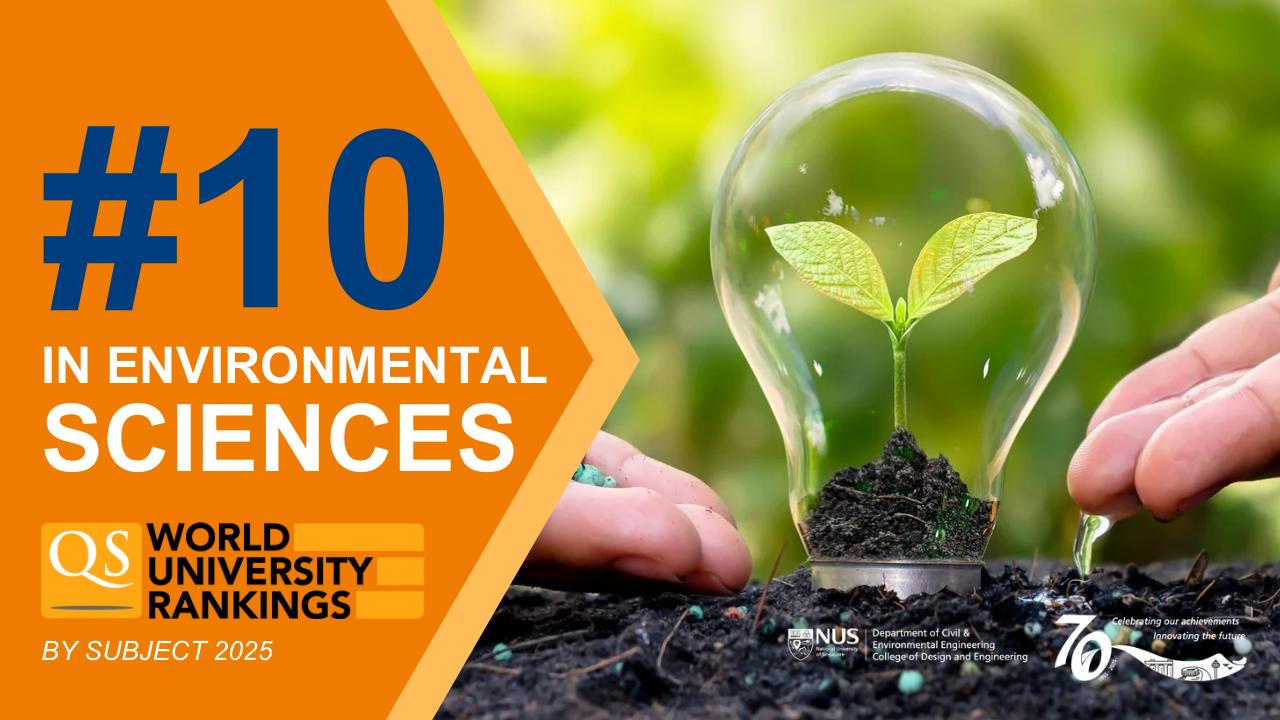
About Environmental and Sustainability Engineering
Environmental and Sustainability Engineering (with effect from cohort AY2024/2025) draws from the science of biology, chemistry, ecology and hydrology to devise sustainable solutions to improve our quality of life, while maintaining a clean and healthy environment.
Key topics:
-
- Air pollution monitoring and control
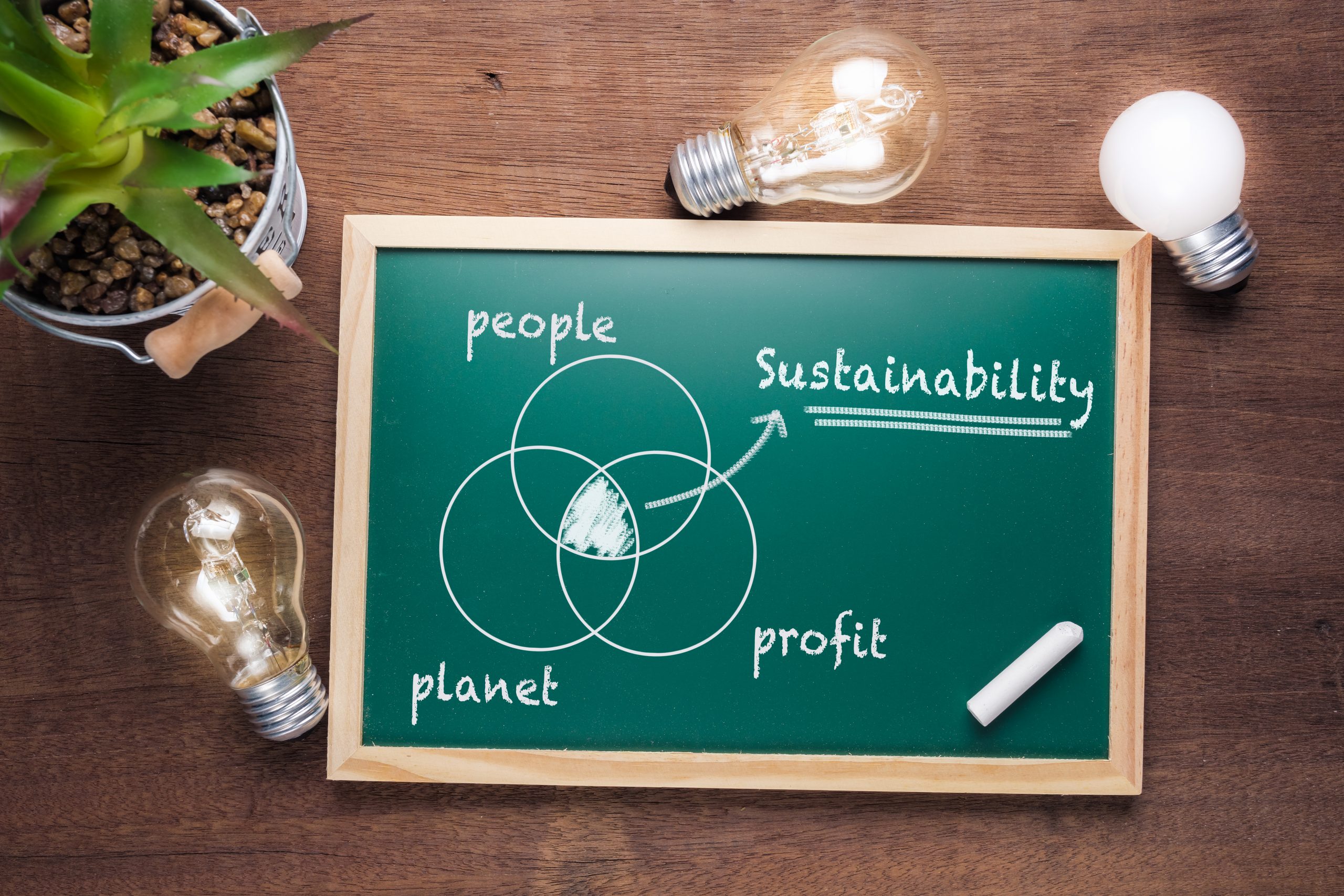
- Water quality monitoring and control
- Circular economy and resource management
- Water reclamation and reuse
- Public health, safety and environment
- Renewable energy
- Sustainable development
- Air pollution monitoring and control
Accreditation
The Environmental and Sustainability Engineering programme is accredited by the Engineering Accreditation Board (EAB) of Singapore, a signatory of the Washington Accord. As such, our graduates can practice their profession, as well as pursue graduate studies, in all other countries that are part of this Accord, including the USA, UK, Canada, Australia and more.
Programme Educational Objectives (PEO)
- Graduates will be technically competent. This is to include having the ability to analyze and solve environmental engineering problems by applying mathematics, engineering principles, computer skills, and natural sciences to environmental engineering practice and using modern engineering techniques, skills, and tools to identify, formulate and solve environmental engineering problems;
- Graduates will be able to apply knowledge and skills from a broad education in order to understand impacts of environmental engineering solutions in a global, societal, and environmental context consistent with principles of sustainable development;
- Graduates will be prepared for professional practice in environmental engineering and will demonstrate abilities to communicate and work effectively in an ethical manner on professional teams, exhibiting a commitment to lifelong learning and professional development in industry, government, and /or academia.
Watch Our Video Here!



